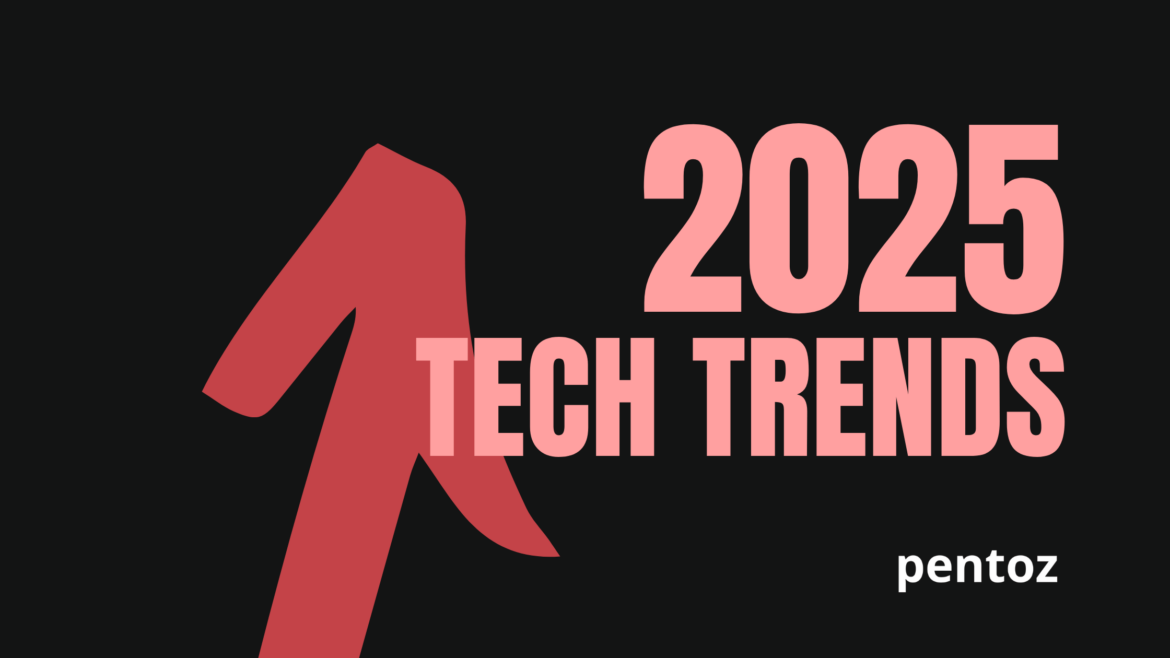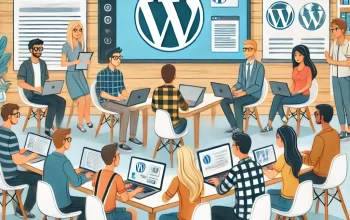As we step into 2025, the technology landscape is evolving at an unprecedented pace. From artificial intelligence breakthroughs to the integration of quantum computing, the coming year promises to bring a wave of transformative innovations. Here’s a look at the tech trends that will dominate in 2025 and shape the way we live, work, and interact with the world.
1. Generative AI: The Rise of Creative Machines
Artificial intelligence has made massive strides in recent years, but 2025 will be the year generative AI truly steps into the spotlight. While AI’s capabilities in automation and data analysis have been well-established, advancements in generative AI are opening up new frontiers. From AI-created art and music to fully automated software development, machines will begin to take on more creative tasks.
In industries such as entertainment, marketing, and design, generative AI will enhance human creativity, offering assistance in creating personalized content at scale. It will also impact industries like healthcare, where AI can help create tailored treatment plans based on patient data, or in architecture, where AI tools will generate innovative design concepts.
2. Quantum Computing Breakthroughs
Quantum computing is no longer a futuristic concept—it’s quickly becoming a reality. In 2025, we are expected to see significant advancements in quantum algorithms and hardware. While quantum computers are still in their infancy, this year marks a turning point where they may begin solving complex problems that traditional supercomputers cannot.
With their ability to process vast amounts of data at speeds unimaginable to classical computers, quantum computers will have a huge impact on industries like drug discovery, materials science, and cryptography. As companies such as IBM, Google, and startups across the globe work towards developing quantum systems, we’re on the brink of a new era in computing.
3. 5G and the Dawn of 6G
5G networks have already started rolling out worldwide, but in 2025, the true potential of 5G will begin to be realized. By offering ultra-low latency, higher speeds, and the ability to connect millions of devices simultaneously, 5G will enable the proliferation of IoT devices, smarter cities, and enhanced AR/VR experiences.
However, the tech world is already looking beyond 5G, with early research into 6G networks underway. While 5G will connect billions of devices and enable faster internet speeds, 6G is expected to push the boundaries even further, offering data transfer speeds of up to 1 terabit per second. 6G will be a game-changer for industries like autonomous driving, holographic communications, and virtual presence.
4. Augmented and Virtual Reality (AR/VR) Become Mainstream
While AR and VR have gained traction in niche markets, 2025 will see these technologies reach the mainstream. With advancements in hardware, such as lighter, more comfortable headsets, and improvements in the software that powers immersive experiences, AR and VR will be integrated into daily life.
Expect to see a rise in virtual workplaces, where employees can interact in realistic 3D environments regardless of location. Gaming will continue to push the envelope with more immersive worlds, and educational institutions will utilize AR/VR to provide hands-on learning experiences. In healthcare, AR will assist doctors in surgeries, while VR will be used for pain management and rehabilitation.
5. Autonomous Systems: From Vehicles to Robots
Self-driving cars have been a topic of conversation for years, but 2025 is the year when autonomous systems will become more mainstream. While fully autonomous vehicles are not yet ubiquitous, 2025 will see significant advances in autonomous driving technology, particularly with urban mobility solutions like self-driving taxis.
Robots, too, will become an integral part of industries such as logistics, healthcare, and manufacturing. From warehouse robots to autonomous delivery drones, these systems will increase efficiency, lower costs, and improve safety. The integration of AI with autonomous systems will ensure faster and smarter decision-making in real-time.
6. Biotech and Healthtech Revolution
In 2025, the convergence of technology and healthcare will yield extraordinary advancements. Biotech startups are pushing the boundaries of gene editing, personalized medicine, and regenerative therapies. With CRISPR and other gene-editing technologies, scientists are working on curing previously untreatable diseases.
In the realm of healthtech, wearables will go beyond fitness tracking and evolve into real-time health monitoring devices. These gadgets will monitor everything from glucose levels to mental health, providing users with instant feedback and actionable insights. Additionally, AI-powered diagnostic tools will enable healthcare providers to detect diseases earlier and more accurately, potentially saving countless lives.
7. Blockchain and Decentralized Finance (DeFi)
Blockchain technology and decentralized finance (DeFi) will continue to transform the financial landscape. By 2025, blockchain is expected to be more deeply integrated into industries ranging from supply chain management to voting systems. Its ability to provide transparent, secure, and decentralized solutions is gaining traction across sectors.
In finance, cryptocurrencies will become more mainstream as governments and financial institutions adopt blockchain to streamline transactions, enhance security, and reduce costs. DeFi, which allows financial services such as lending, borrowing, and trading to operate outside of traditional banking systems, will further democratize access to financial services.
8. Sustainability Tech: Green Tech and Circular Economy
The urgency of addressing climate change will continue to drive innovation in 2025. Sustainability-focused technologies will be at the forefront, with renewable energy solutions becoming more efficient and widespread. Solar power, wind energy, and battery storage technologies will see breakthroughs that make them even more affordable and accessible.
The circular economy model—where products are designed for reuse, recycling, and minimizing waste—will also gain momentum. Companies will adopt more sustainable practices, and consumers will demand environmentally friendly products. Smart grids, energy-efficient buildings, and carbon capture technologies will become integral to the fight against climate change.
Conclusion: The Future is Now
As we enter 2025, technology is advancing faster than ever before, shaping industries and our daily lives in profound ways. From generative AI to quantum computing, the potential for innovation seems limitless. While the pace of change presents challenges, it also offers unprecedented opportunities for growth, sustainability, and human advancement.
At Pentoz News, we’re excited to continue bringing you the latest updates on these transformative trends and to watch as technology continues to redefine what’s possible. Stay tuned, because the future is closer than you think.





